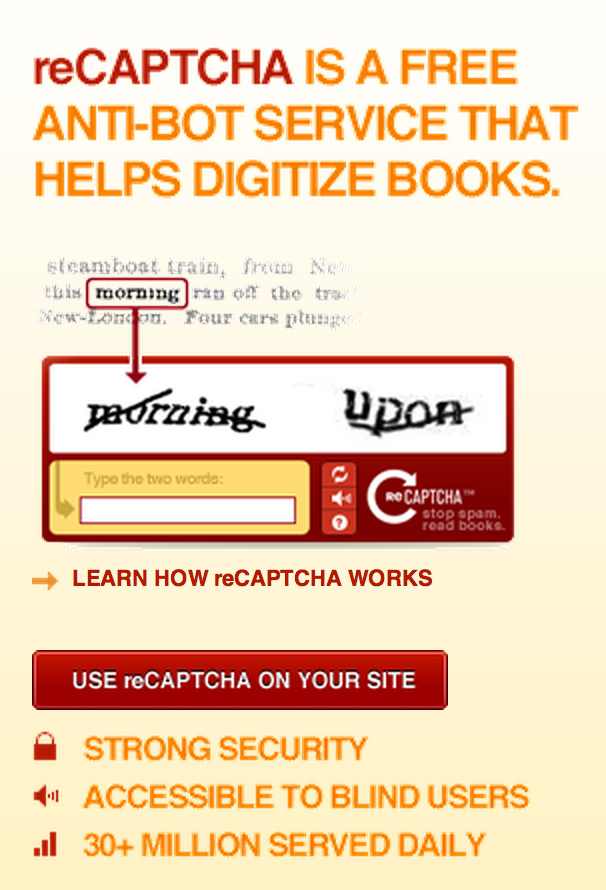The goal of von Ahn is explicit. Thompson explains that he “wants to harvest every idle moment in our lives and turn it to productive use,” because if anyone, everyone, “could be coaxed into enjoying a game that contributed to solving a computing problem it would produce billions of man hours of labor each year.” [4] Let us note the procession of the various parts of speech: harvest, turn, use, coax, enjoy, contribute, solve, produce, idle, lives, game, computing, problem, billions, hours, labor.

The problem facing von Ahn was how to corral into delicate balance the antagonism between work and play, to subsume the competing drives towards a unified goal. We are, after all, at the dawn of the Ludic Century. Users will gladly “contribute their brainpower, but only if they’re given an enjoyable, time-killing experience in exchange.” The theory is: quality play is well enough pay so long as it appears to be time well spent. From the Wired article, now taken down:
“Most projects that harness human processing power rely on a different motivator: money. Many companies use Amazon’s Mechanical Turk to farm out informational piecework, usually for about 10 cents a task. These are often quick-hit recognition jobs that computers can’t perform. PriceGrabber.com uses thousands of Web surfers to update its catalog by hunting down and in putting descriptive information on products. A mapping firm called Geospatial Vision hires crows to pore over satellite pictures of cities and identify tiny features like lampposts and road signs. ‘There are 6 billion human beings in the world. We could do a lot of stuff if we all work together,” says Peter Cohen, director of Mechanical Turk.”